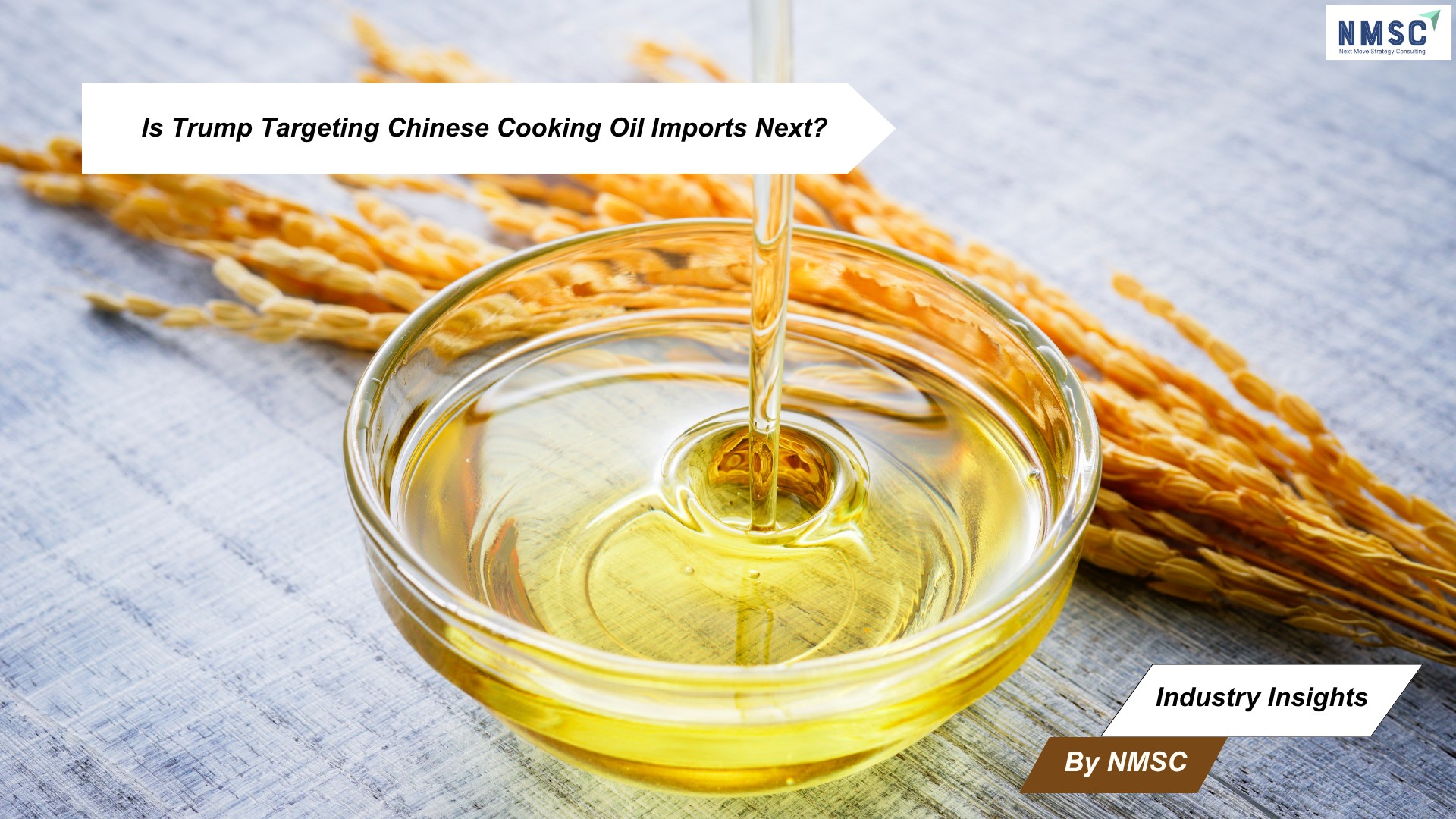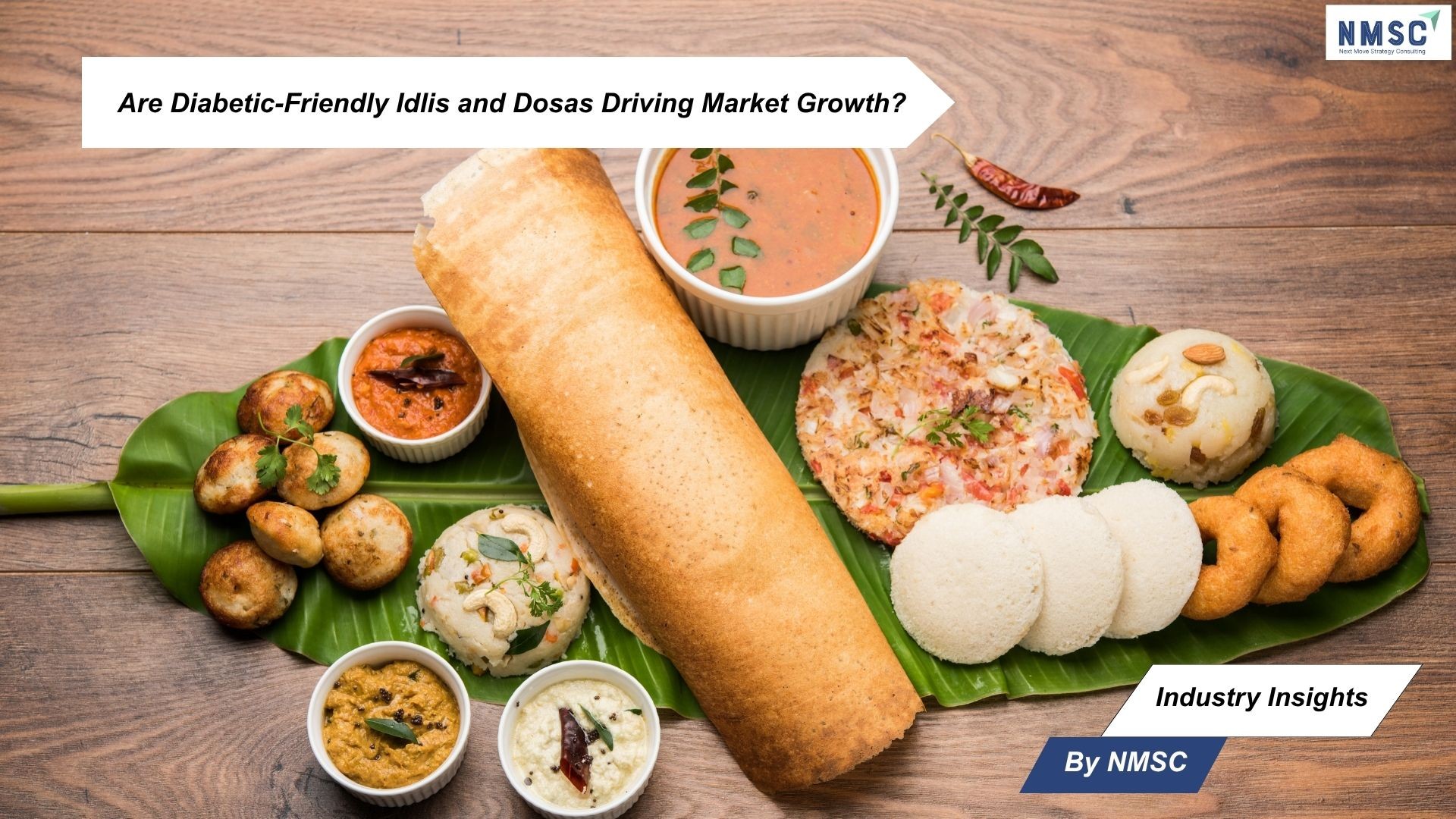Is Trump Targeting Chinese Cooking Oil Imports Next?
Published: 2025-10-15

Industry Insights from Next Move Strategy Consulting
In a bold escalation of the US-China trade standoff, President Donald Trump has signaled plans to terminate trade ties involving cooking oil with Beijing, framing China's soybean purchasing halt as an "economically hostile act." This move underscores deepening frictions in agricultural commerce, where soybeans— a primary raw material for cooking oil production—face unprecedented disruptions, threatening supply stability and farmer livelihoods worldwide.
A Direct Retaliation Against Soybean Snub
The US soybean harvest is in full swing, yet China, historically the largest importer of American beans, has recorded zero bookings for the current season. This stark reversal from last year's purchases—worth approximately USD 12.5 billion (around Rs 1.05 lakh crore)—has driven prices downward, sparking alarm among Midwest growers who now face shrinking markets and mounting storage costs.
Trump's announcement, shared via Truth Social, highlights the administration's frustration: "We are considering terminating business with China having to do with cooking oil, and other elements of Trade, as retribution. As an example, we can easily produce cooking oil ourselves, we don’t need to purchase it from China." This rhetoric positions domestic production as a viable alternative, potentially redirecting focus toward self-sufficiency in edible oils.
Core Elements of the Brewing Conflict
Several factors amplify the stakes in this agricultural impasse:
-
Soybean Export Collapse: The US supplies 61% of global soybeans, but China's absence as a buyer has halted momentum, with farmers delaying sales amid tumbling futures.
-
Farmer Strain: Rising tariffs inflate costs for essentials like fertilizers and machinery, eroding profit margins. Additional insights from industry sources, including the Wall Street Journal, Nomura, and agricultural experts such as Sarah Taber, reflect similar concerns over falling soybean demand and trade timing pressures.
-
Strategic Leverage: Echoing past maneuvers with rare earth minerals, Beijing deploys the soybean import freeze as a negotiation tactic. Nomura's chief China economist Lu Ting observed, “US soybeans now are not that important to China. That’s why Beijing can afford to use the import ban as a bargaining tool.”
-
Diversification Shift: China has ramped up sourcing from alternatives, securing 2 million tons from Argentina in September to sustain its hog and poultry sectors.
-
Timing Pressures: Over half of US exports traditionally flow from October to December; delays until Brazil's February crop could forfeit the prime sales window, per crop scientist Sarah Taber.
Voices from the fields reflect raw sentiment. Kentucky's Caleb Ragland, president of the American Soybean Association, described the "overwhelming" frustration, while retiring farmer Dean Buchholz lamented to the Wall Street Journal, “I can’t make it work... without spending a boatload of money and keep putting myself into more debt.”
Ripples Through the Cooking Oil Market – NMSC Viewpoint
This flare-up extends beyond soybeans, directly unsettling the cooking oil sector where US imports from China play a supporting role in blended supplies. As Trump contemplates severing these ties, market watchers anticipate short-term price spikes for domestic oils, driven by reduced import buffers and heightened production costs. US refiners may pivot to in-house crushing of local beans, but scaled-up output could strain processing capacities, leading to supply bottlenecks through early 2026.
From a market research lens, the dispute accelerates a reconfiguration of global cooking oil value chains. With China offsetting US volumes via South American imports, NMSC’s preliminary trade flow models indicate that US producers could risk losing 15–20% of their market share in the $50 billion edible oils segment, potentially reducing Midwest revenues by about 25% if disruptions persist. This volatility not only pressures farmer incomes but also invites inflationary echoes for consumers, as oil prices ripple into food manufacturing. Long-term, it bolsters calls for diversified export strategies, urging stakeholders to eye emerging buyers in Southeast Asia and Europe to mitigate overreliance on any single partner.
Broader Trade Echoes and Path Forward
The soybean standoff mirrors Beijing's playbook from prior disputes, transforming a staple crop into a high-stakes bargaining chip. As tariffs rebound and retaliatory measures mount, the cooking oil trade hangs in balance, with no clear timeline for dialogue. Taber cautioned that absent a December deal, the US could miss the global buying cycle entirely, compounding losses in an already tariff-burdened landscape.
This chapter in US-China relations tests the resilience of agricultural markets, where interdependence once fostered growth but now fuels uncertainty. For the cooking oil industry, the imperative is clear: adapt to fragmented flows or face prolonged instability.
Prepared by: Next Move Strategy Consulting
About the Author
 Sneha Chakraborty is a passionate SEO Executive and Content Writer with over 4 years of experience in digital marketing and content strategy. She excels in creating optimized, engaging content that enhances online visibility and audience engagement. Skilled in keyword research, analytics, and SEO tools, Sneha blends creativity with data-driven insights to deliver impactful results. Beyond her professional work, she enjoys reading, sketching, and nature photography, drawing inspiration from creativity and storytelling.
Sneha Chakraborty is a passionate SEO Executive and Content Writer with over 4 years of experience in digital marketing and content strategy. She excels in creating optimized, engaging content that enhances online visibility and audience engagement. Skilled in keyword research, analytics, and SEO tools, Sneha blends creativity with data-driven insights to deliver impactful results. Beyond her professional work, she enjoys reading, sketching, and nature photography, drawing inspiration from creativity and storytelling.
About the Reviewer
 Sanyukta Deb is a skilled Content Writer and Digital Marketing Team Leader, specializing in online visibility strategies and data-driven campaigns. She excels at creating audience-focused content that boosts brand presence and engagement, while also pursuing creative projects and design interests.
Sanyukta Deb is a skilled Content Writer and Digital Marketing Team Leader, specializing in online visibility strategies and data-driven campaigns. She excels at creating audience-focused content that boosts brand presence and engagement, while also pursuing creative projects and design interests.















Add Comment